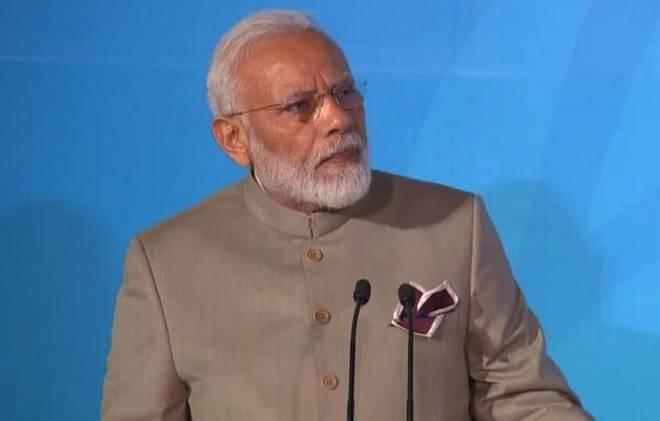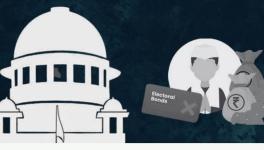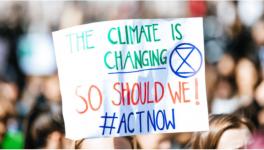Modi’s 450 GW Renewable Energy: Who Will Foot the Bill?

Prime Minister Narendra Modi, in his usual fashion of springing surprises on an unsuspecting nation, has declared that India would double its renewable energy deployment, and aim to achieve 450 GW of installed capacity from non-fossil fuels in the future. The small mercy in this is that he does not seem to have set a timeline to achieve this target. This statement was made at the UN Climate Summit, during his visit to the US. India already has a target to achieve 175 GW from renewable energy (100 GW from solar energy, 60 GW from wind energy, and the remaining from biomass and small hydro power) by 2022. As part of the Paris Agreement, India has also said that it will increase the share of its non-fossil fuel based installed power generation capacity to 40%.
The import of a unilateral statement by the Prime Minister on what India plans to contribute to climate action at the UN Summit over and above its commitment under the Paris Agreement is confounding, especially as the summit is happening in the US, a country which has decided to withdraw from the Paris Agreement. The Trump administration’s decision to take multiple steps backward on climate action has also aided regressive climate policies in other developed countries. According to their own Biennial Update Reports submitted to the UNFCCC, hardly any of the developed countries are on track to meeting their own nationally determined contributions, pledged under the Paris Agreement, contributions which were inadequate to begin with. However, there seem to be multiple attempts from different quarters to push the onus of all future climate action on the shoulders of developing countries. While this has been an ongoing effort, a dangerous new development in this direction seems to be the United in Science report published as a background paper for the UN Climate Summit that does not even pay lip service to the principles of equity embedded in the UNFCCC (United Nations Framework Convention on Climate Change). Unfortunately, this report has scientists and advisors from developing countries, even from India, who seem to have sanctioned this position.
The prime minister’s statement has to also be seen in light of the fact that India’s power sector is currently reeling under financial stress. The addition of new thermal power plants in the last decade has increased the cost of electricity from coal-based power since the cost of capital for these plants is still to be recovered. That these plants have started producing electricity at a time when there is stagnation in power demand has further added to the woes in the sector. In addition to this, the overall cost of electricity has increased in many parts of the country because of “must run” renewable energy projects, long-term agreements for which have been signed for very high-cost power. The average cost of power from solar plants in Tamil Nadu, for example, is above Rs 6/unit. Passing all these costs downstream, from the generation to the distribution companies, to eventually the consumers is not always possible as a large section of India’s energy consumers do not have the capacity to pay the full cost of electricity. The consumers who can pay, have either availed the possibility of an exit offered by the country’s open access policy to escape having to cross subsidise poorer consumers, or are currently reeling under an overall slump in the economy to be able to afford higher cost power themselves. Non-performing assets (NPAs) in the power sector are increasing, and renewable energy projects seem to be next in line to be classified as NPAs of public sector banks.
In addition to the current crises like situation of the power sector, the challenge of achieving grid integration of large amounts of renewable energy is not yet resolved. In most parts of the country, thermal plants are being used to balance the rapid changes in the injection of renewable energy in and out of the grid. This is an inefficient use of resources and also leads to higher costs. It is possible to use hydro projects and especially pumped hydro projects to balance the grid, and developing such resources, and even revamping existing resources to support renewable energy integration into the grid will take some time and planning. Unlike other countries, India does not have substantial reserves of natural gas which can support the inclusion of renewable energy due to its capacity to rapidly ramp up power production when required. Unfortunately, this handicap cannot be resolved by importing LNG, although it will definitely increase India’s import dependence and reduce its energy security in the long run.
In the meantime, for all the purported suspicion and dislike of foreign-funded organisations that the current government claims to harbour, national laboratories of the US are allowed free access to the corridors of power in New Delhi, which then allows them to lobby for certain directions in energy policy that may not necessarily be in India’s best interests. For example, there is a big lobby for battery systems to help integrate renewable energy in the grid when currently there is an order of magnitude difference between the cost of battery systems and the cost of pumped hydro systems.
It should also be remembered that India has very little manufacturing capacity in solar energy, which is to be the biggest part of its energy transition plan. We are dependent on imported solar panels, and ironically, the very country in which the prime minister made his speech, dragged India to the World Trade Organization (WTO) against our decision to have domestic content requirements in our National Solar Mission. The domestic contents requirements were envisaged as an incentive for Indian manufacturers to invest in solar panel and component manufacturing. However, since the WTO has now ruled against India, and the government of India has no plans to develop solar manufacturing in the public sector, which can circumvent the WTO guidelines, that ship seems to have sailed. Therefore, the implications of the prime minister’s visit to the US seems to be a higher dependence on imports—from solar panels to LNG—the cost of which will be borne by Indian consumers in the long run, providing a boost to the Chinese and US economies.
The prime minister’s statement at the UN Climate Summit seems to be perfectly aligned then with an inequitable and unjust future for developing countries. India and other developing countries are being pressurised to bear a much higher burden, and pay a much higher cost, of mitigating climate change and the government seems to falling in line instead of opposing such narratives. And unfortunately, at the end of this, India along with other developing countries, will still face the brunt of the impact of climate change as global climate action will remain inadequate without higher emissions reductions by developed countries and China. Given the state of things today, the world faces a temperature rise of well above 2 deg. C. Instead of posturing at international fora, with bombastic announcements that will lead to even greater financial stress back home, and divert resources that we will need for adapting to climate change, the prime minister would have been more ‘nationalist’ had he held the global North accountable for their lack of action on climate change.
Get the latest reports & analysis with people's perspective on Protests, movements & deep analytical videos, discussions of the current affairs in your Telegram app. Subscribe to NewsClick's Telegram channel & get Real-Time updates on stories, as they get published on our website.
























